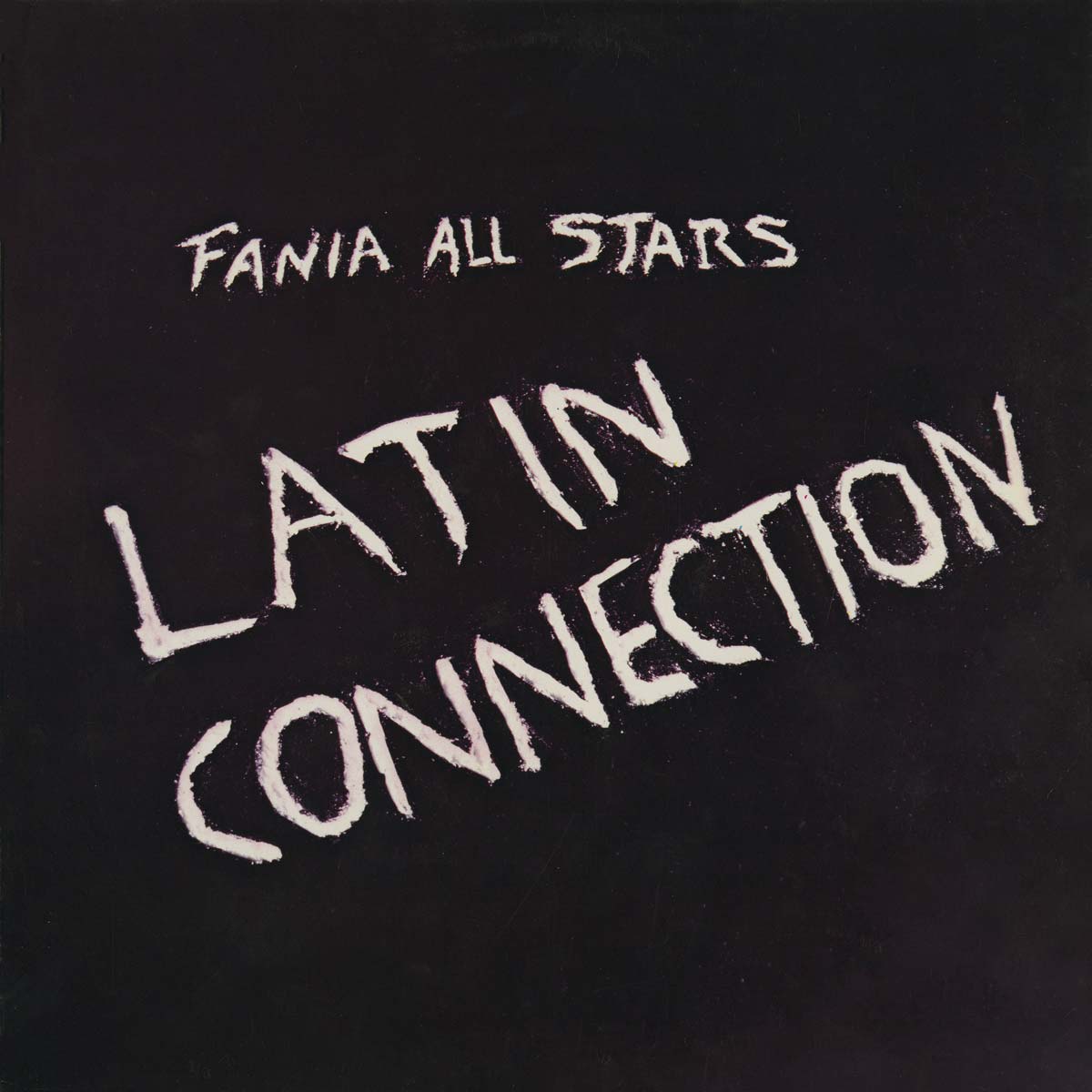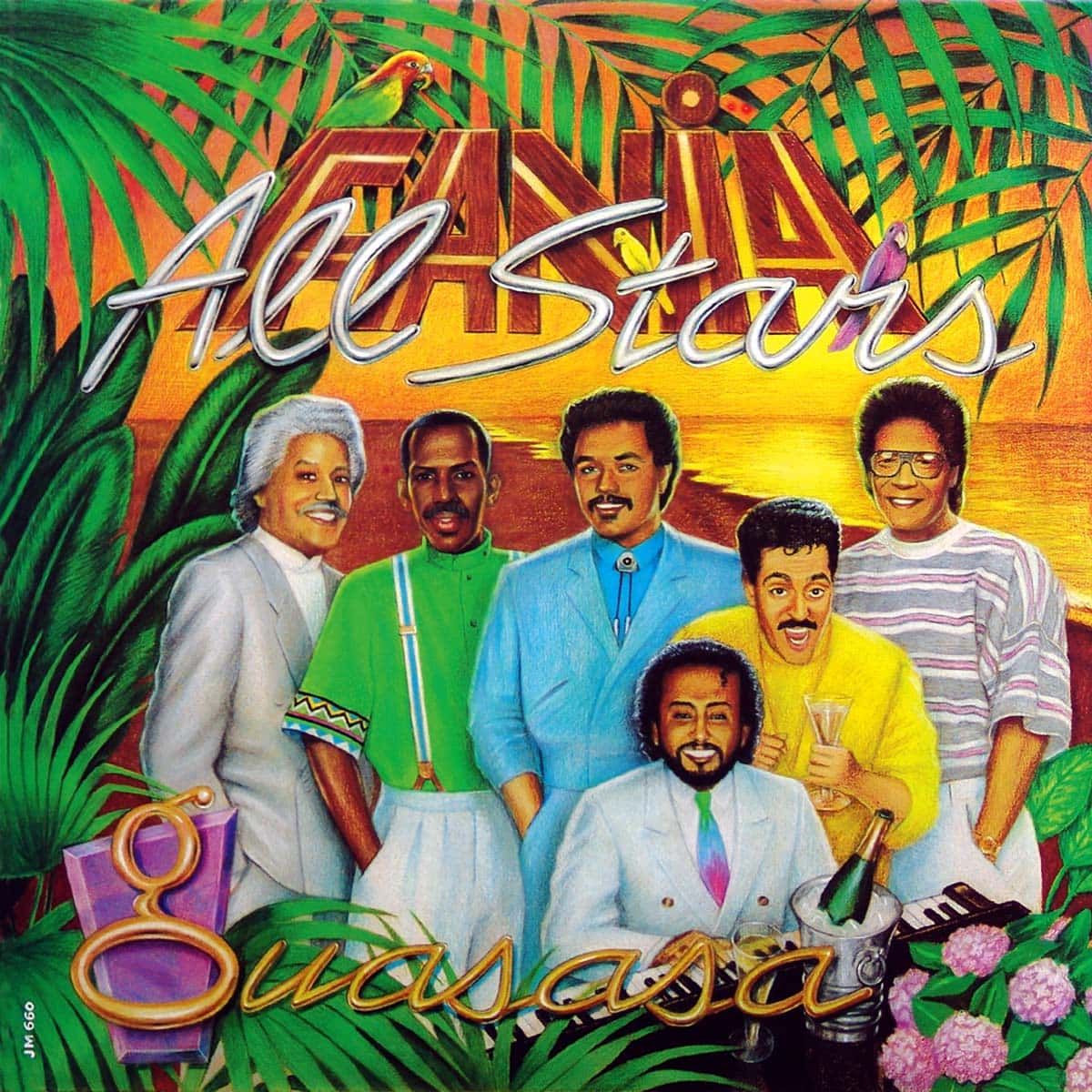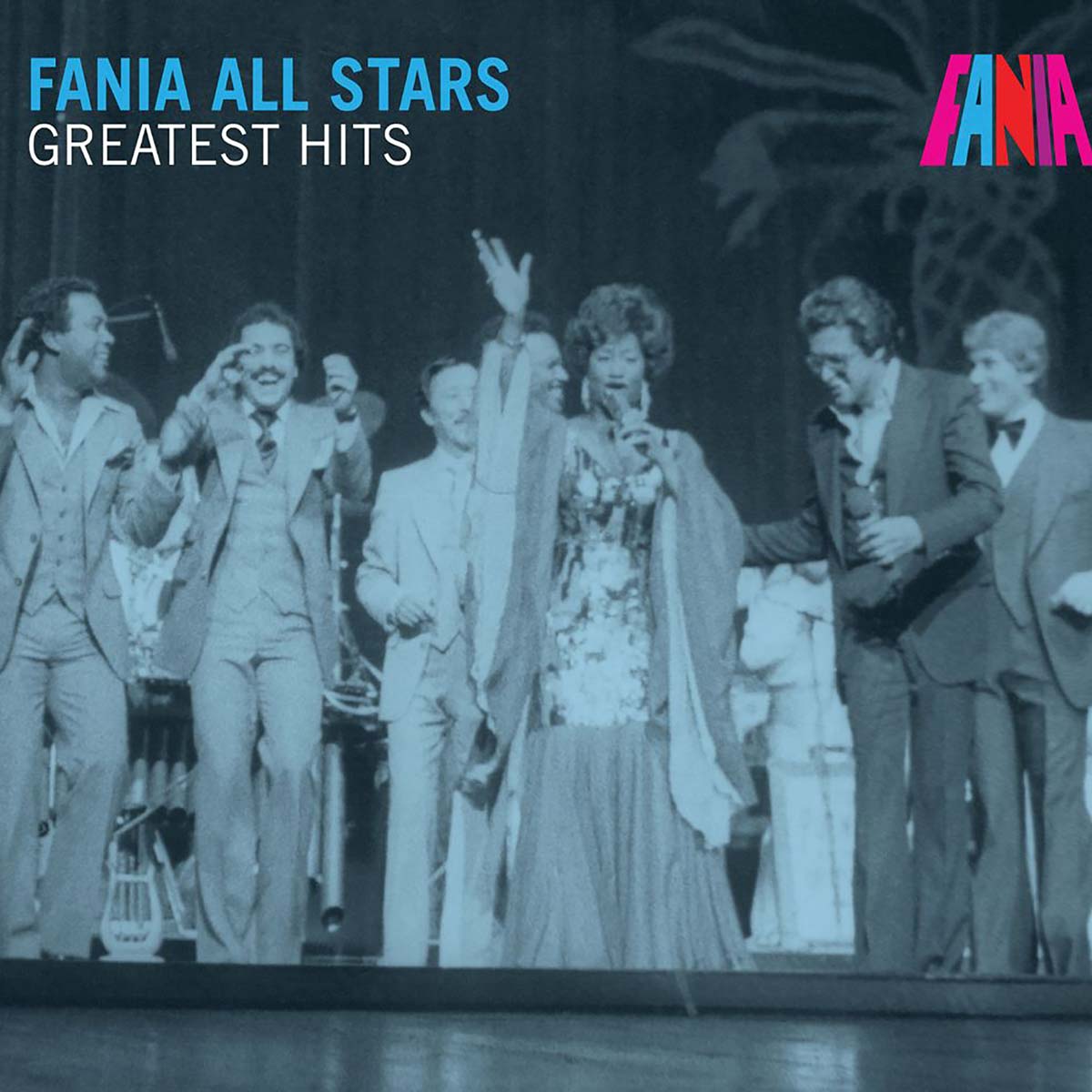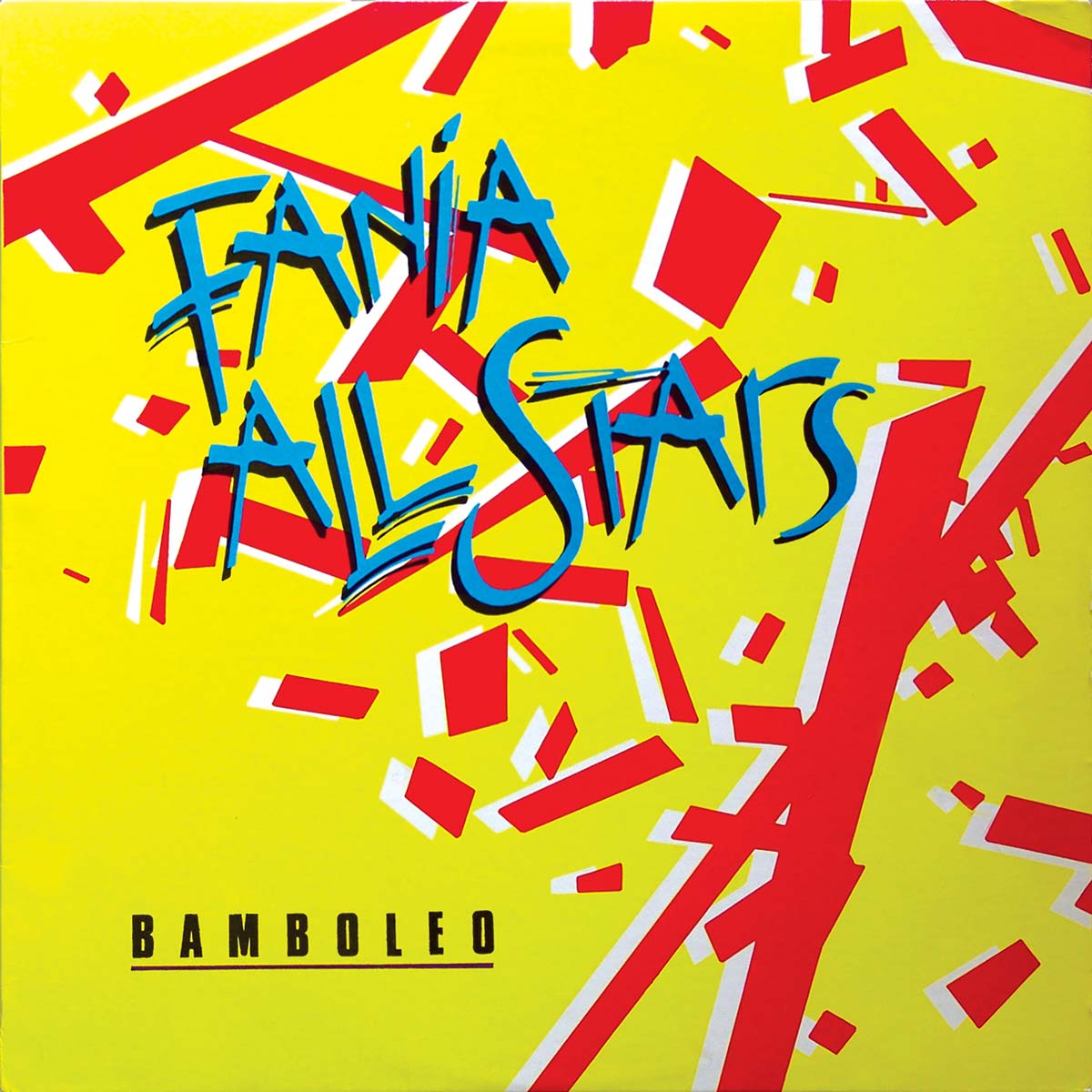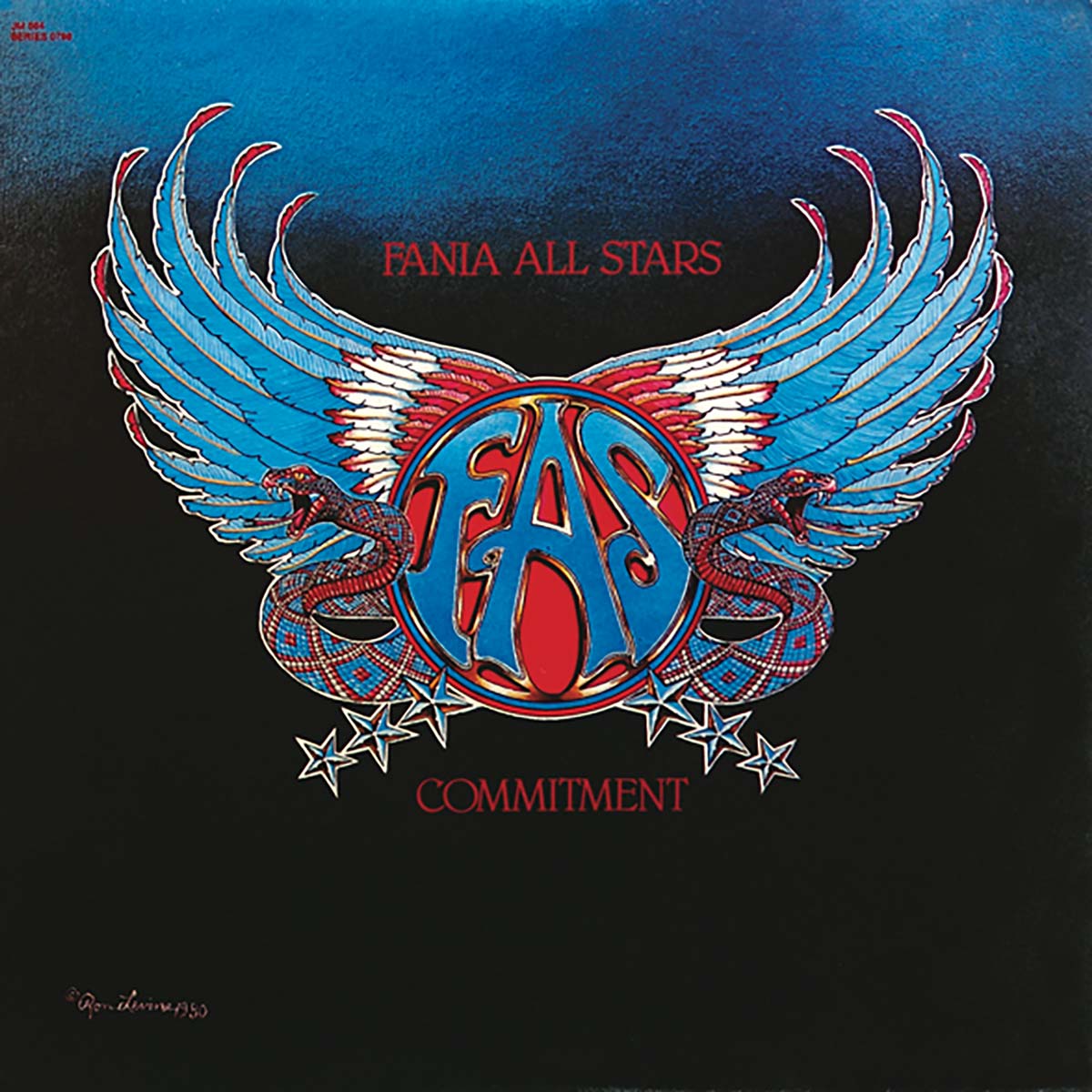
Released in 1980, “Commitment” marks Fania All Stars’ formal return to full-time salsa swinging after a bittersweet end to their crossover period under Columbia Records.
By this time, a lot had changed for the All Stars. Longtime band-leading stalwarts like Ray Barretto, Willie Colón, Larry Harlow and Bobby Valentín were now gone–the latter no longer a Fania Records act. Others, like longtime key members Yomo Toro and Nicky Marrero actually returned to the lineup after a brief absence. However, upon their return they took up a lesser role in the band as a result of the absence of star musicians (e.g., bandleaders) who now concentrated the show’s weight almost entirely on its solo singers instead of a balance between singers and soloists that defined the band since its inception.
Can you say anticipating the future? On the other hand, with an overgrown roster of artists in the label’s now seriously compromised budget, there are several singers missing on this release. Ismael Miranda, to name one obvious choice, is one of the vanishing acts here. While still relying heavily on string arrangements and complex, more sophisticated charts (a result of their Columbia recordings and the band’s format change), this album reconnected Fania’s superband with the average salsa fan, yielding four major singles as well as refueling the band’s touring schedule as they now had another hit album to boot (instead of riding on the individual singers’ own hits).
With Valentín now gone, Jerry Masucci starts a very rewarding collaboration with Puerto Rican-born Luís García, whom from this album on is the band’s main arranger. This album’s lengthy opener and one of Masucci’s own favorites, “Encántigo” is García’s first assignment here, showcasing a superb duo between Celia Cruz and Pete El Conde Rodríguez (who released a duo album that same year). A strange but welcome choice, the All Stars pay homage to Puerto Rico (homeland for the majority of their lineup) with its national anthem “La Borinqueña”, sung by José Cheo Feliciano. The only chart without strings on this album, “Dinamita” brings back Adalberto Santiago on a stellar role, with Louie Ramírez delivering both the score and the vibes solo.
A fan of Papo Lucca’s virtuosity, Masucci wanted to showcase him with the All Stars, so in comes Tite Curet Alonso with the tailor-made “Piano Man”, sung by Lucca’s fellow ponceño Ismael Quintana. Being Fania’s top selling act by then (along with the missing Willie Colón), it’s no surprise that Ruben Blades has the lead single here: Argentinean Carlos Franzetti’s score for yet another marvelous Alonso composition titled “La Palabra Adios”. Celia returns with another unfamiliar choice on “Cuando Despiertes”, another García chart and one of the very first examples of erotic motifs in salsa long before this became a trend during the mid-1980’s. The romantic venue is enhanced here with the expert himself, Santos Colón, on a stunning, memorable rendition of “Dime”, a direct translation of Morris Albert’s “Feelings” with Juancito Torres delivering a gorgeous flugelhorn to the mix on top of guest Eric Gale’s smooth guitar. Fittingly, although having the final song in an All Stars album wasn’t necessarily the most coveted spot, Héctor Lavoe brings it all back home with his version of Machito’s “Ublabadu”, with the band actually stretching out admirably with strong solos by Eddie Montalvo, leader Johnny Pacheco and Cuban violinist Pupi Legarreta. Paraphrasing the album’s title, here the Fania All Stars resume their longtime commitment as salsa’s leading flagship on this release. And more than 25 years after its original release, this album, as well as the band itself, has aged and hasn’t lost its punch.
Credits: Puchi Boulong – Trumpet Sal Cuevas – Bass Reinaldo Jorge – Trombone Lewis Kahn – Trombone Nicky Marrero – Timbales, Marching Drum (“La Borinqueña”) Eddie Montalvo – Congas (solo on “Ublabadu”) Ray Maldonado – Trumpet (solo on “Piano Man”) Leopoldo Pineda – Trombone Juancito Torres – Trumpet, Flugelhorn (solo on “Dime”) Héctor “Bomberito” Zarzuela – Trumpet Johnny Pacheco – Leader, Fflute (solo on “Ublabadu”), African Percussion (intro “Encántigo”) , Percussion Roberto Roena – Bongos (solo on “Encántigo”), Güiro (“La Borinqueña”) Papo Lucca – Piano (solos on “Piano Man”, “Dime”) Louie Ramírez – Vibes (“La Borinqueña”, “Dinamita”) Pupi Legarreta – Violin (solo on “Ublabadu”) Yomo Toro – Cuatro (solo on “Encántigo”) Guests Artist: Eric Gale – Guitar (“Cuando Despiertes”, “Dime”) Louis “Perico” Ortiz –Trumpet solo “Cuando Despiertes” Chorus – Rubén Blades, Humberto “Tito” Nieves, Néstor Sánchez Vocals – Celia Cruz (“Encántigo”, “Cuando Despiertes”), Pete “El Conde” Rodríguez (“Encántigo”), José Cheo Feliciano (“La Borinqueña”), Adalberto Santiago (“Dinamita”), Ismael Quintana (“Piano Man”), Rubén Blades (“La Palabra Adiós”), Santos Colón (“Dime”), Héctor Lavoe (“Ublabadu”) Producer – Jerry Masucci Recorded at – La Tierra Sound Studios, Ltd., New York City Engineer – Irv Greenbaum Arrangements – Luis García (“Encántigo”,” Dime”), Wilson Torres Jr. (“La Borinqueña”), Louie Ramírez (“Dinamita”, “Cuando Despiertes”), José Febles (“Piano Man”), Carlos Franzetti (“La Palabra Adios”), Luís Cruz (“Ublabadu”) Original Album Cover and Design – Ron Levine
Written by Thomas Muriel


